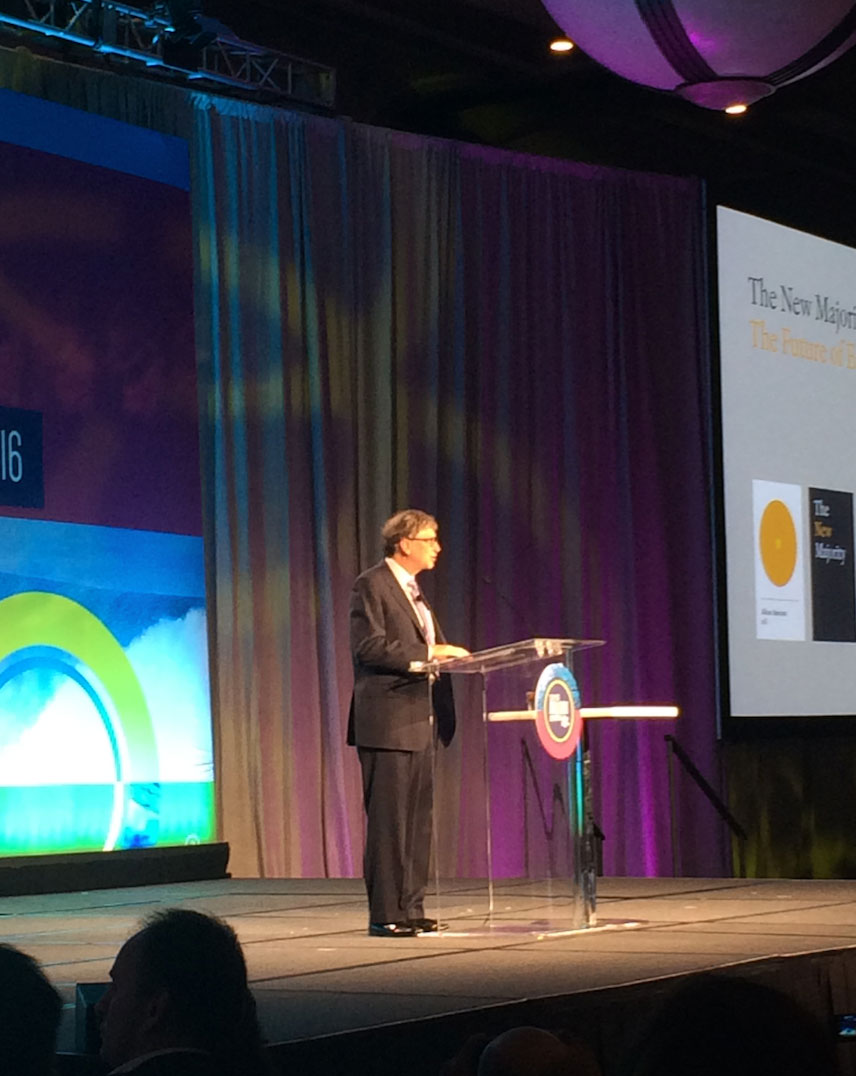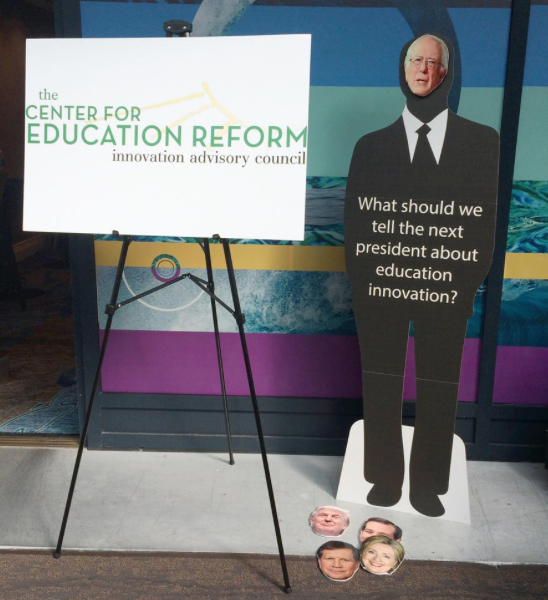
Special Edition Newswire
Vol. 18, No. 16
April 26, 2016
A RECAP ON THE NATION’S LEADING EDUCATION TECHNOLOGY AND INNOVATION SUMMIT
PUTTING THE “I” IN EDREFORM. Resetting the landscape for structural change in education requires providing for maximum opportunities for kids, teachers and families – and the flexibility for innovations to be tested and applied. CER is leading the charge by bringing innovation into its core mission, connecting policymakers with entrepreneurs doing extraordinary things. This week we produced a series of panels at the ultimate in innovators’ events – the ASU-GSV Summit. Check out:
- CER Directors Talking About Results
- Leaders in Digital Learning on Engaging Millennials
- The Future of Innovation in Literacy
- Innovation and the Elections
- Humanizing Private Ventures for Public Good

LEADERSHIP. The importance of great leaders in producing and advancing innovation and education was a key theme of the three-day event. Jim Collins, legendary author and business guru, challenged us to stay persistent in our daily 20-mile marches despite less-than-favorable conditions by focusing on what we can control. In the field of parent power, that means staying glued to the goal. Bill Gates challenged attendees to think about how we can accelerate the pace of innovation in order to have a bigger impact on students. Michael Moe, Co-Founder of Global Silicon Valley Partners and CER Board Member, stressed that the US is a great place for visionary innovators to work hard and make great things happen, and “it’s our job to ensure every person has an
equal opportunity to participate in the future.” General Stanley McChrystal, best known for his command of Joint Special Operations Command in the mid-2000s, encouraged us to “lead like gardeners,” because gardeners enable and encourage great things to grow.
ARTS IN EDUCATION. “Why is it so hard?” Malissa Shriver, Executive Director of Turnaround Arts California, asked world-renowned architect Frank Gehry about arts education, which has proven to have a profound impact on the very students who are least exposed to it: low-income children. “You are trying to change things that don’t want to change,” said Gehry. “It’s not a money problem, it’s an engagement problem,” said Malissa Shriver, Executive Director of Turnaround Arts California, noting arts turnaround schools outperformed School Improvement Grant schools by more than double, and with a fraction of the money.
PRIVATE INVESTMENT SERVES PUBLIC GOOD. When entrepreneurs are part of the effort to deliver products and services that impact learning, everyone wins. The almost 4,000 people with diverse backgrounds, interests, history and demographics gathered believe in the power of the private sector to help education solve its most pernicious problems. Unprecedented investment in technology and research to measure outcomes make for a flourishing landscape of opportunities for generations to come.
TELL THE NEXT PRESIDENT WHAT YOU THINK OF INNOVATION. While we were at the ASU-GSV Summit, we got leading innovators’ thoughts on what the next President should do to improve the conditions to let parent power and outcomes flourish. (And gave them a chance to swap out presidential candidates’ faces with their preferred pick!) Creepy? Maybe. Regardless, it did the job in drawing attention to this important issue. Coming soon, a chance to lend your voice! Stay tuned!












